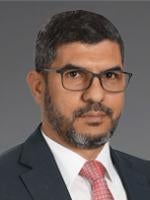BACKGROUND
In Dubai, there has been scope for jurisdictional conflicts to arise between the common law, English language Dubai International Financial Centre (DIFC) Courts, and the ‘onshore’ Dubai Courts, which are Arabic language, civil law courts.
In June 2016, the Ruler of Dubai, His Highness Sheikh Mohammed bin Rashid Al Maktoum, issued Decree No. 19 of 2016, which established the “Judicial Committee of Dubai Courts and DIFC Courts” (Old Judicial Committee) to resolve active conflicts of jurisdiction between the two. Accordingly, if parties commenced proceedings against each other, one in the DIFC Courts and the other in the onshore Dubai Courts, and both courts accepted jurisdiction, to avoid parallel proceedings and prevent disputes from being determined in the ‘wrong’ court, either party (or the attorney general) could request the Old Judicial Committee to decide which court had jurisdiction. Alternatively, if the Dubai Courts and the DIFC Courts both declined jurisdiction over a claim, an application could be made to the Old Judicial Committee to determine the competent court. The Old Judicial Committee also had jurisdiction to determine which judgment should be enforced in the case of conflicting judgments issued by the Dubai Courts and the DIFC Courts in relation to the same parties and the same subject matter.
DECREE NO. 29 OF 2024
By Decree No. 29 of 2024, which came into force on 17 April 2024, the Old Judicial Committee has been replaced by the “Judicial Committee for Resolving Conflicts of Jurisdiction between DIFC Courts and Judicial Bodies in the Emirate of Dubai” (New Judicial Committee).
The New Judicial Committee has a wider jurisdiction than its predecessor. It has the power to determine jurisdictional challenges between the DIFC Courts and any of the “Judicial Bodies” – defined as “The Dubai Courts, the Rental Disputes Resolution Centre in the Emirate, and the Judicial Committees that are formed by virtue of a decree or a decision of the Ruler [of Dubai] or the Chairman [of the Judicial Council], and other judicial bodies in the Emirate that are deemed as judicial bodies according to the legislation establishing them or regulating their functions” (Judicial Bodies).
Decree No. 29 of 2024 specifies that: (i) in the event of a conflict of jurisdiction between the DIFC Courts and any of the Judicial Bodies; or (ii) in case all of them have declined jurisdiction; or (iii) if contradictory judgments have been issued by the DIFC Courts and any Judicial Body on lawsuits related to the same litigants and the same subject matter, the parties to the proceedings may apply to the New Judicial Committee to determine the competent judicial body, or which judgment should be executed (Application).
In addition:
- The attorney general is no longer specified as having the power to make an Application to the New Judicial Committee.
- Once an Application has been duly submitted to the New Judicial Committee, all respective claims and applications shall be suspended until the New Judicial Committee issues a decision.
- Unlike under Decree No. 19 of 2016, the New Judicial Committee is not required to issue a decision within 30 days of receiving an Application, as there is no time limit specified in Decree No. 29 of 2024.
- Decisions issued by the New Judicial Committee are final and not appealable by any means.
- Decree No. 29 introduces a formal system of binding precedent. Legal rules prescribed by the New Judicial Committee in its decisions shall be deemed to be “judicial principles” that shall be abided by all Judicial Bodies (at all levels) and the DIFC Courts. If any judgment breaches such rules, that shall be deemed to be a ground to file an appeal against the judgment in accordance with any means of appeal prescribed by law.
COMMENTARY
Decree No. 29 of 2024 can be viewed as a positive development, in that it expands the jurisdiction of the New Judicial Committee beyond the Dubai Courts to other onshore Judicial Bodies, and also formally introduces the concept of binding judicial principles, which should promote consistency and efficiency in legal proceedings in Dubai.
It does, however, potentially allow for ‘guerilla tactics’, as claims are stayed automatically on the submission of an Application and there is no express time limit for the New Judicial Committee to issue a decision. Only time will tell whether the New Judicial Committee’s practices and procedures operate to exclude or encourage such tactics.





 />i
/>i

